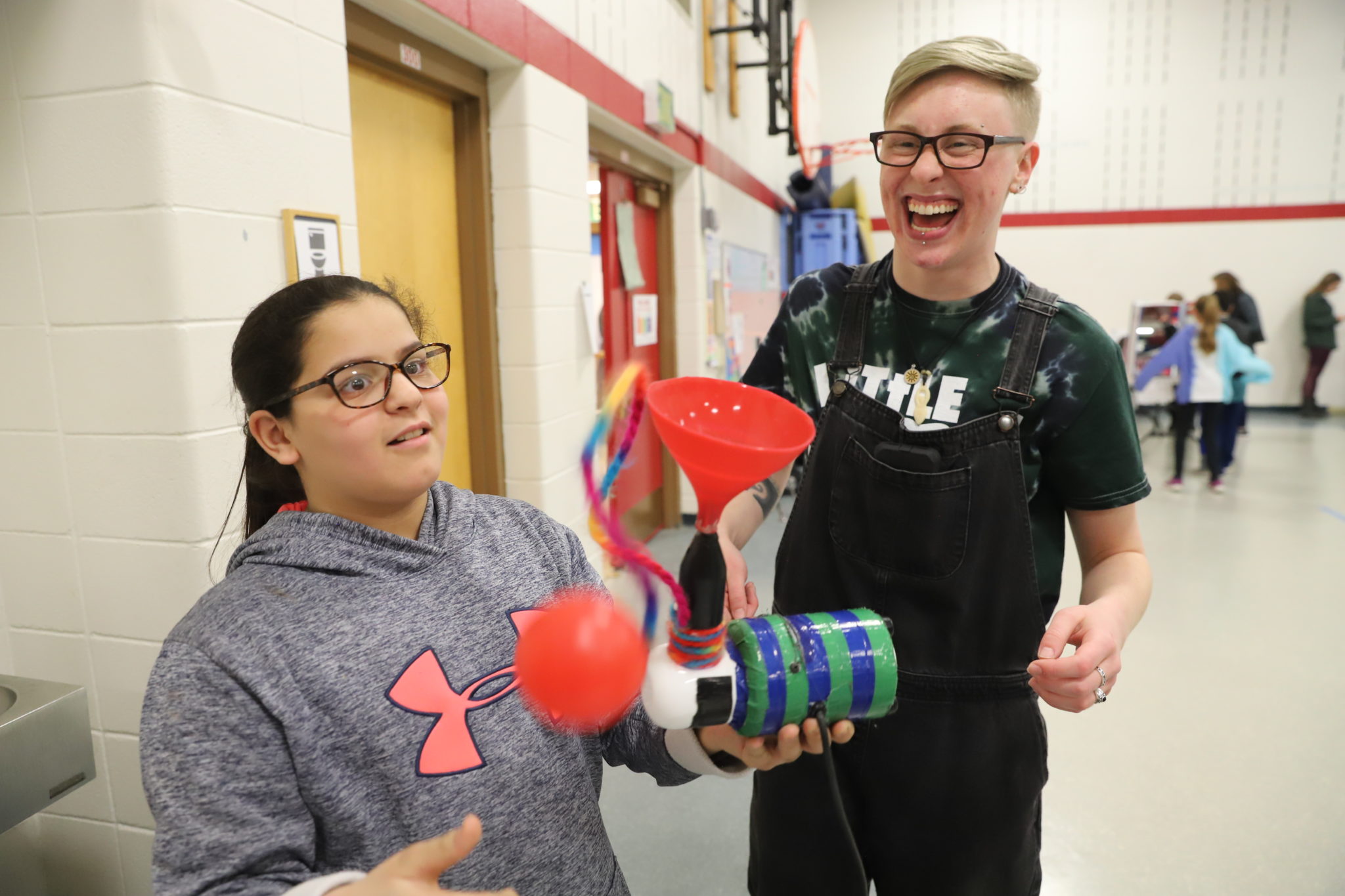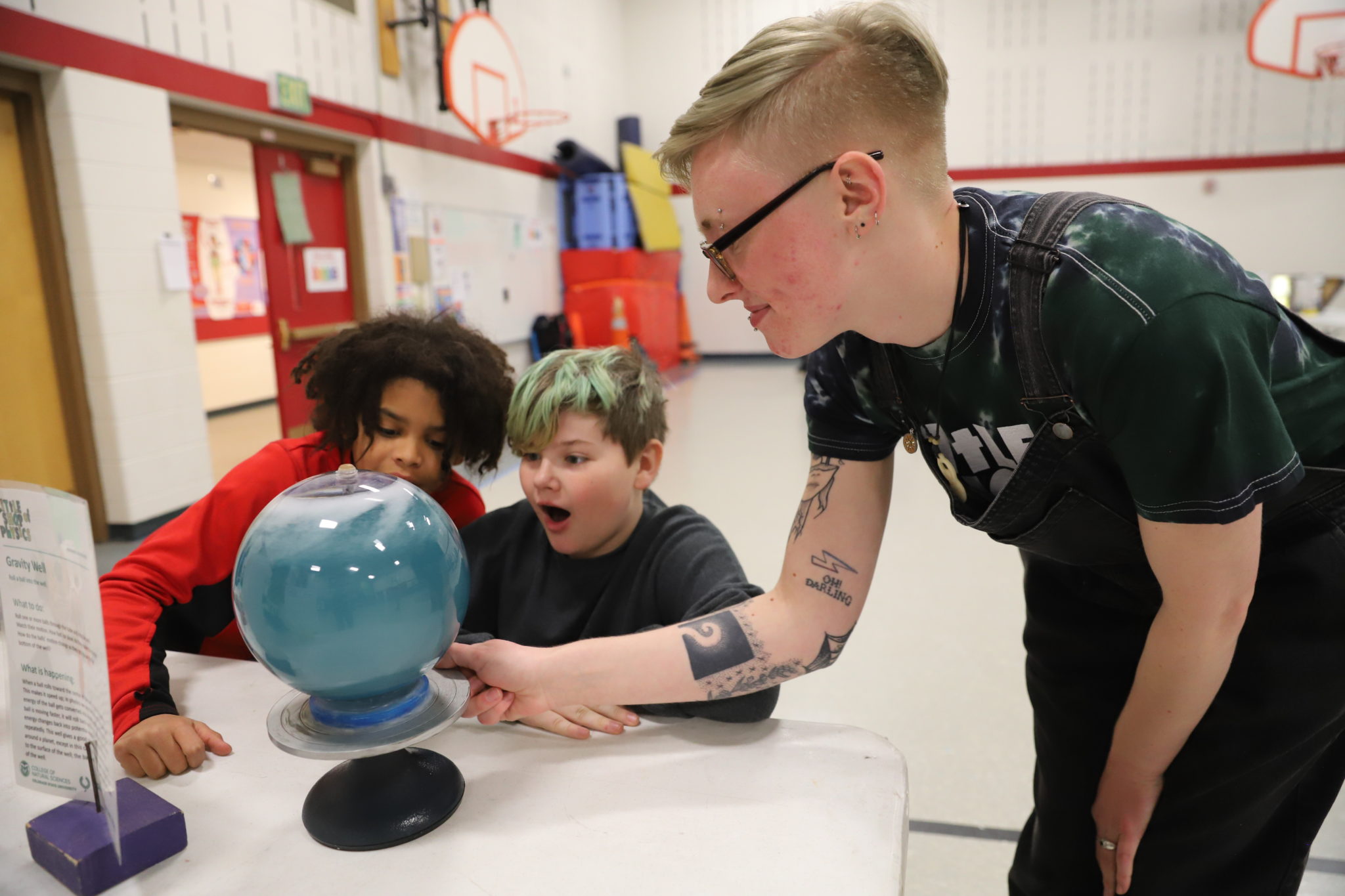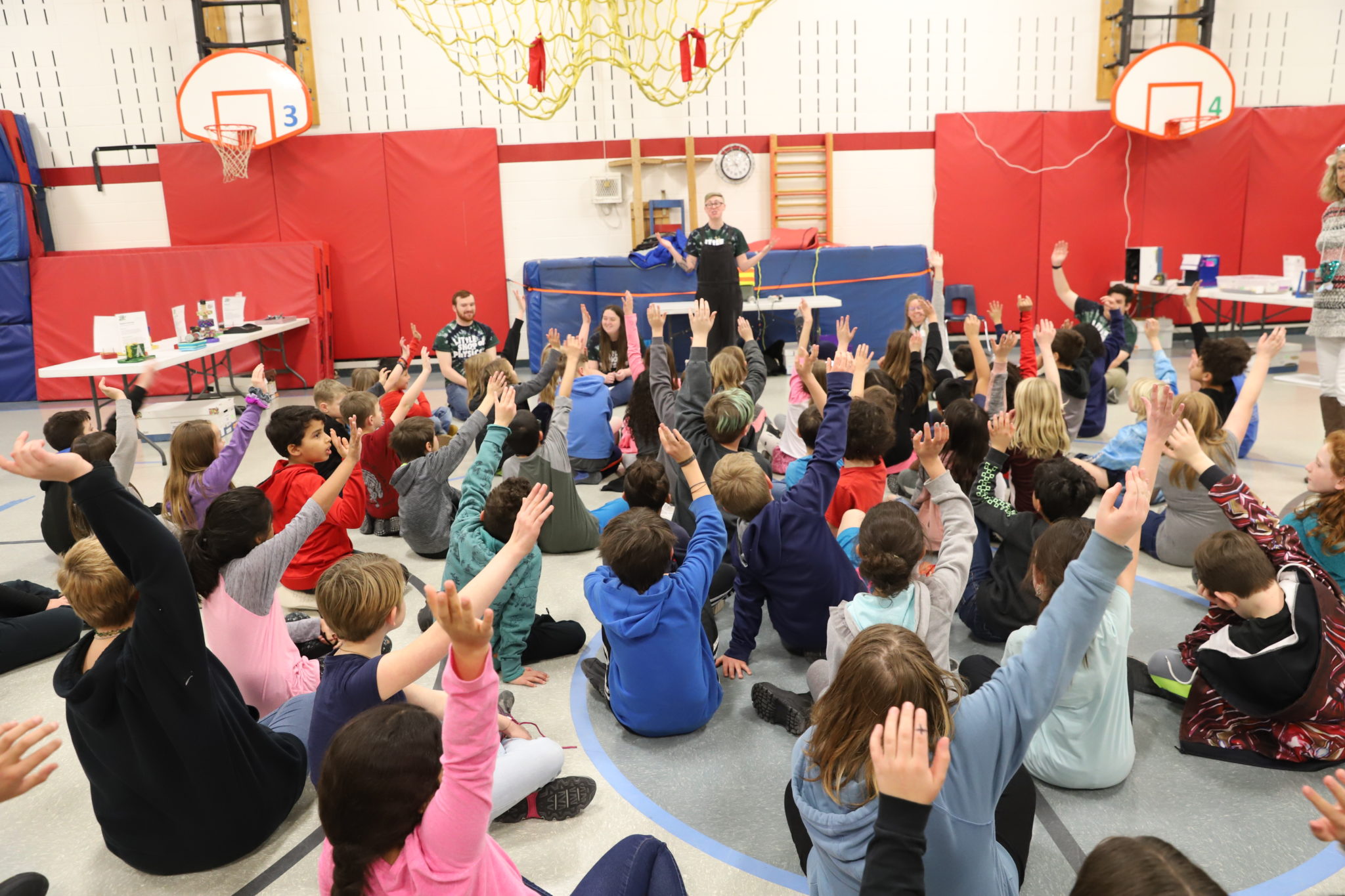
Hunter Ridgeway smiles and waves through the Microsoft Teams call, their cat Georgie paces on the windowsill behind them. Ridgeway has short blonde hair and has recently returned from a student teaching shift. Ridgeway is kind and easy to talk to and are a powerful change agent in every space they enter.
Ridgeway is an active advocate for systemically marginalized people, a future educator, a nonbinary scientist, a key part of the Preston Middle School Queer-Straight Alliance (they are the only trans adult at the school), and a beloved member of the Amplify Learning Community and Little Shop of Physics at Colorado State University.
Student teaching
Ridgeway is majoring in Natural Sciences with the intent of becoming a science educator and an advocate for equity and justice inside schools
They are in the midst of their last semester, which involves a 12-credit student teaching position — they are teaching geology and earth science to sixth graders at a local Fort Collins middle school — and attending a monthly seminar with other student teachers. In December, they will graduate with a Bachelor of Science in Natural Sciences and will be recommended to be officially licensed as an educator.
Following curiosities
Ridgeway didn’t always know that they wanted to be a teacher but considered it a backup plan.
“I always thought: ‘Ok, whenever I’m burned out on this career then I’ll go be a teacher,’” they said.
Ridgeway started as a microbiology major at CSU, but when they took a class about culturally responsive pedagogy with instructor Tom Cavanagh in the Department of Ethnic Studies, it became obvious that teaching was the right path for them.
Cavanagh’s class emphasized restorative justice based in community circles. He developed this framework from his research on the relationships between Indigenous and white children in New Zealand and mediating the conflicts that arose between those populations. The pedagogy was demonstrated hands-on throughout the course, which helped Ridgeway feel sure that this was what they were meant to do.

“I realized I should just start with the thing I’m most passionate about,” they said. “That was four years ago now. That same week I went and joined the education department and changed my major. I credit where I am right now to that class.”
Ridgeway hasn’t implemented restorative justice in the classroom as much as they’d like to, but they foresee incorporating it into their own classroom one day. The school district they work at is just now training their teachers in this pedagogy, which means Ridgeway could be on the forefront of shaping this important practice in the school district.
“I can’t imagine a gentler guide for a student’s first experience with science,” said Brian Jones, director of Little Shop of Physics, “and I am certain that Hunter’s impact will be on the students with different ideas, different identities, different perspectives that Hunter encourages and engages. We have a pressing need for more diversity in science, and we need teachers like Hunter to welcome these students.”
Vincent Basile, co-director of the Race and Intersectionality Studies in the Education Equity Center in the School of Education, agreed.
“I hope Hunter goes on to a long career of inspiring K-12 and college students, and transforming science and science education, leading by example, for many years,” he said.
Coming to CSU
Ridgeway grew up in Fort Collins, and originally decided to try out the University of Colorado Boulder in an effort to explore places beyond Fort Collins. It was quickly evident that CU Boulder was not the right fit, and they transferred to Front Range Community College and eventually found their way back to CSU and Fort Collins.
“Once I started here I realized the vibe was way more my speed, it was much easier to make friends, it was just a much better fit,” they said.
Ridgeway made all their closest friends in the education program and soon found their way into an internship for future science teachers at Little Shop of Physics.
Little Shop had visited Ridgeway’s high school back in the day, and Ridgeway remembered thinking: “This was the coolest thing … I want to do this. If I go to CSU, I want to be a part of this.”
 When Brian Jones, the director of Little Shop of Physics, was leaving Ridgeway’s high school that day many years ago, Ridgeway had told him they wanted to be a part of the Little Shop team one day.
When Brian Jones, the director of Little Shop of Physics, was leaving Ridgeway’s high school that day many years ago, Ridgeway had told him they wanted to be a part of the Little Shop team one day.
As a college student, Ridgeway fulfilled this dream. Working with Little Shop helped reinforce that teaching was the right path for them. “Every day I left I was exhausted but my cup was full,” they said.
Heather Michalak, assistant director of Little Shop of Physics, can tell Ridgeway will be a teacher who makes an impact on their students.
“In the teaching field, the highest praise is students who return to tell you how you made a positive difference in their life,” she said. “I have no doubt Hunter will hear many positive stories from former students.”
Finding Amplify
Amidst the beginning of the COVID-19 pandemic, Ridgeway had left Little Shop and their job as a chemistry learning assistant and was looking for a new way to get involved.
Ridgeway got in touch with Alexandra Keller, the director of the Amplify, a residential learning community through the College of Natural Sciences designed to magnify and advance individual voices in STEM.
The two connected over a shared love of social justice and worked to develop a full-time summer job with Amplify. Ridgeway ran Amplify’s social media accounts with an acute eye turned to promoting the intersection of science and equity.
“I love Amplify so much,” Ridgeway said. “I love them because they don’t overlook anyone. Just talking with Alexandra or Lindsey for three minutes and you can feel the love and passion just pouring out of them constantly. You can feel how intentional they are about making space for and pouring love into students of color and students that need it the most.”
Where they are heading next
Ridgeway’s dream is to teach for a few years, and eventually pursue a Ph.D. in equity and social justice and education.

“I want to be the director of diversity, equity, and inclusion in a school or district,” they said. “I want to stop the oppression and discrimination before it gets to the students.”
In the meantime, Ridgeway will be getting married to their partner Xander, and Brian Jones from Little Shop will be officiating.
Everyone at CSU who knows Ridgeway well is awed by their passion and devotion to equity in STEM, and can’t wait to see where they go next.
“Hunter is a passionate student with remarkably deep moral courage and an unwavering ethic of care,” said Vincent Basile, co-director of the Race and Intersectionality Studies in the Education Equity Center in the School of Education. “Science disciplines, including science education, have propagated false notions of objectivity, being apolitical, and somehow separate from social issues including diversity, equity, and inclusion. In these science spaces, Hunter unapologetically speaks truth to power, demanding that science collectively recognizes the ways in which it has and continues to exist within certain social constructs, including gender binaries, among others.”
What makes Hunter even more unique and amazing, is that they have done this while also continuing their growth as a strong science content expert and pedagogue. Hunter demonstrates clearly to their fellow and future CSU students that one can be an excellent scientist, educator, and change agent all at once.”